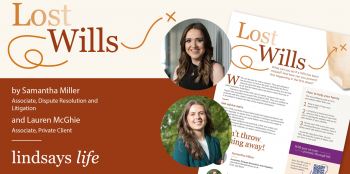In Scotland, financial provision for cohabitants on separation and death is set out in the Family Law (Scotland) Act 2006 and gives cohabitants a certain degree of rights. However, it is unclear whether cohabiting couples in Scotland are considerably better off than their counterparts south of the border.
In July 2007 the Law Commission in England and Wales published their report and recommendations to overhaul the law in England and Wales. Unfortunately, the government decided not to take the suggested reforms forward and in the current climate it seems unlikely that reform will be reconsidered anytime soon. This means that cohabitants in England and Wales remain in what is described as an “unsatisfactory” legal position and subject to “a patchwork of legal rules” that can lead to uncertainty, injustice, complexity and considerable expense.
The law in Scotland
Scottish law defines ‘cohabitants’ as unmarried couples who live together as if they are husband and wife. There is no qualifying duration of relationship and in deciding if the Act applies the court will consider the length of the relationship, the nature of it and the financial arrangements between the parties during the relationship.
The Act created two rights – a claim on separation and a claim on death.
A claim upon separation
The Act also allows a claim to be brought for a lump sum on separation and for a claim to be made in respect of the financial burden of looking after a child of the relationship. The law currently only allows the claim to be in the form of a cash lump sum payable in full or in installments. It is possible the Scottish Parliament may review this policy and consider allowing additional ‘payments’, such as property transfer or pension sharing akin to financial provisions that can be made on divorce.
The Scottish claim process is very similar to what was proposed by the Law Commission South of the border in 2007. The law requires the surviving cohabitant to demonstrate they have been economically disadvantaged and/or that their former partner has been advantaged and essentially that the claimant has ended up in a worse position.
A claim upon death
This only applies on intestacy (when someone dies without a Will) and allows a surviving cohabitant to claim broadly the same financial provision as a surviving spouse.
It’s worth noting that according to private client lawyers, in many cases the provision a surviving cohabitant settles for actually ends up being less than that of a surviving spouse.
The time limit on the claim is six months from date of death and where no executor has been appointed in that timeframe there are certain practical issues around raising proceedings to assert the right to claim. The cohabitant can also find his or her claim competing with claims of the deceased’s surviving children and if these children are from a previous relationship of the deceased there is real scope for family strife.
Determining the value of claim
In Gow v Grant the Supreme Court concluded the legislation should aim at fairness and a general balancing out of the economic impact of the relationship rather than attributing each item of expenditure to one party or the other and seeing who ends up worse off.
Quantifying claims is very difficult. The legislation is an improvement on having no rights at all but in practice it can be challenging to work out what a claim is worth and what the prospects of success might be. Even if you can bring a claim ultimately the court hearing the claim has discretion to decide what (if anything) should be awarded. The limited nature of the type of order is also a drawback in many cases where the main asset may be the family home.
This article recently featured as a blog on Stowe Family Law’s website, a company founded by Britain’s best known and well-respected divorce lawyer, Marilyn Stowe.








